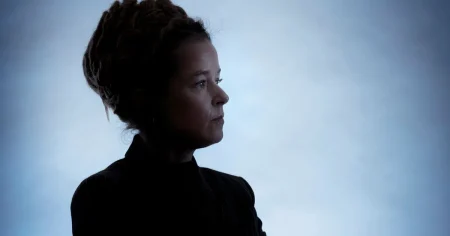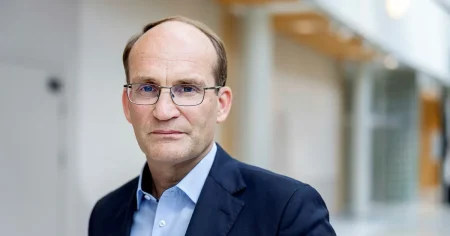Lisa Nåbo, the 30-year-old president of the Swedish Social Democratic Youth League (SSU), is stepping down from her position in August 2025. A new mother, Nåbo expresses a desire to return to her hometown of Linköping and resume her career as a police officer, a path she had started before entering politics. She acknowledges the need for a younger leader who can better connect with today’s 16-year-olds, the core demographic of the youth league. While her immediate focus is on family and returning to her chosen profession, Nåbo doesn’t entirely dismiss the possibility of future political involvement, hinting at potential interest in local politics but stopping short of committing to higher office.
Nåbo’s tenure as SSU president has been marked by both policy advocacy and controversy. During her leadership, the SSU pushed for several key policy proposals, including incorporating dental care into the high-cost protection scheme, halting profits in welfare services, providing free public transport for young people, and implementing a wealth tax. These economic issues, particularly the need for increased public investment, became central to the SSU’s platform under her leadership. Nåbo criticized the Social Democratic Party’s agreement on a balanced budget goal, arguing that it restricts necessary investments in the public sector. She advocated for increased government borrowing to finance these investments, a stance contrasting with the prevailing fiscal conservatism.
The SSU, under Nåbo’s leadership, clashed with the parent Social Democratic Party on its coalition strategies. Nåbo expressed a preference for a single-party Social Democratic government, rejecting potential alliances with other parties. She criticized the Left Party’s demands for cabinet positions as ”empty threats” and dismissed the Center Party’s economic policies as ”far-right,” emphasizing the SSU’s belief that the Social Democrats should not accommodate smaller parties. This assertive stance underscores the SSU’s position within the broader political landscape and its willingness to challenge the parent party’s strategic choices.
Controversy arose during Nåbo’s presidency surrounding Kombispel, a lottery company owned jointly by the SSU and the Social Democratic Party. Revelations of aggressive and exploitative sales tactics targeting vulnerable elderly individuals led to the resignation of two SSU board members who also served on Kombispel’s board. While Nåbo denies having direct knowledge of the sales practices, she acknowledged wishing she had been more proactive in overseeing the company’s operations. The incident brought unwanted attention to the SSU and its financial ties to Kombispel, raising questions about oversight and responsibility within the organization.
The Kombispel scandal, while personally challenging for Nåbo, did not influence her decision to leave the SSU presidency. She described the experience as ”terrible,” expressing embarrassment and shame over the company’s actions. She also criticized the media’s focus on her appearance during the scandal, viewing it as a dismissive and trivializing response to a serious issue. Nåbo’s reflection on the Kombispel affair reveals both a sense of personal responsibility and frustration with the media’s handling of the situation.
Despite the challenges and controversies, Nåbo’s time as SSU president has solidified her position as a prominent voice within the Swedish political landscape. Her advocacy for progressive economic policies, her willingness to challenge the established political order, and her commitment to social justice have shaped the SSU’s agenda and contributed to broader political discourse. While she is stepping away from her leadership role, her influence on the SSU and Swedish politics will likely continue as she navigates her next chapter.














